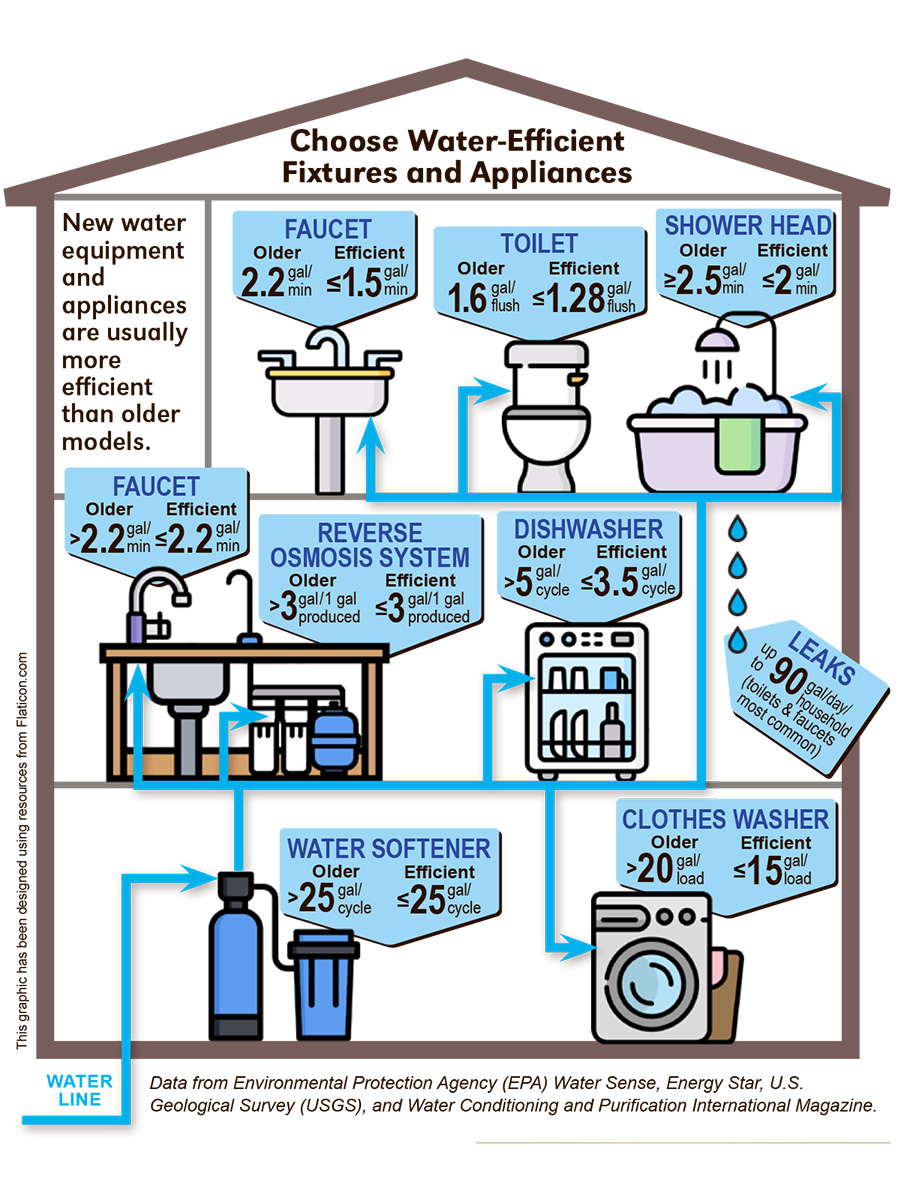
By Becky Schuerman, Extension Domestic Water/Wastewater Associate
National Groundwater Awareness Week is March 6–12, making it the perfect time to talk about groundwater in Nebraska! What exactly is groundwater? It is the water below the earth’s surface that fills the interconnected voids and cracks in and around soil particles, sand, gravel and rock. Groundwater is the most abundant supply of freshwater in the world and is the water source that private drinking water, irrigation, livestock and many public water supply wells draw from.
Over 85% of Nebraskans rely on groundwater as their drinking water source. In addition to consumption, groundwater is used in manufacturing and mining, power generation, and the heating and cooling of homes and businesses. Irrigation accounts for the largest use of groundwater in Nebraska and the U.S.
Conservation and protection practices are critical for all of us to engage in so that our groundwater resources are available and safe to consume for future generations. Here are tips on how you can become a groundwater steward.
HOUSEHOLD WATER CONSERVATION
• Operate your lawn irrigation system manually, instead of using a preset schedule. Check soil moisture levels with a screwdriver by pushing it into the top 8–10 inches. When soil becomes dry, it will be more difficult to push the screwdriver into the soil. Only water when soil moisture levels indicate a need. Deep, infrequent irrigation is recommended to conserve soil moisture and increase turf health.
• Check for and fix any leaky indoor or outdoor water fixtures such as faucets/hydrants, shower heads or continuously running toilets.
• Consider replacing older water fixtures with new, low-water usage ones such as low-flow shower heads, toilets, faucets, dishwashers and clothes washers.
• Take quicker showers, 5 minutes or less.
• Combine smaller loads of laundry and dishes into one larger, full load.
• Lessen wasted water going down the drain by turning off the water while brushing teeth, washing hands/face, shaving or washing dishes.
GROUNDWATER PROTECTION
• Avoid using synthetic chemical cleaners that can contaminate groundwater if used or disposed of improperly. Instead, use natural cleaning products such as baking soda, vinegar and lemon juice.
• Use native or well-adapted plants throughout your landscape. They are drought tolerant and require less watering than poorly adapted introduced species. Their deep root systems help prevent soil erosion, become a part of the earth’s natural filtration system and increase the soil’s water storage capacity. They require little to no fertilization or pest control, thus, decreasing contamination runoff.
• To minimize groundwater contamination, store and dispose of unused chemicals and medicines safely and properly. Lincoln/Lancaster County residents can drop off approved items for free at Lincoln’s Hazardous Waste Center. For more information, go to http://haztogo.com. Visit http://nebraskameds.org for info on the disposal of unused prescription and over-the-counter medications.
• Learn how to properly maintain your private well and residential onsite wastewater systems to help minimize groundwater contamination. For more information, check out Nebraska Extension’s series of six NebGuides on Private Wellhead Protection
at https://water.unl.edu/article/drinking-water/nebguides.
• Properly decommission abandoned wells so they are not conduits for aquifer contamination.
YOUR ACTIONS MAKE A DIFFERENCE
Putting these actions into practice not only helps to protect our groundwater resources but can equate to a significant impact in water usage. Water conservation can potentially reduce your water bill if you are connected to a public water system or your power bill if you have a private well.
By implementing these practices, we can all become better groundwater stewards, helping to ensure future generations have healthy groundwater resources available to them.
FOR MORE INFORMATION
The UNL Water website has resources on residential water use at https://water.unl.edu/residential-water-use.